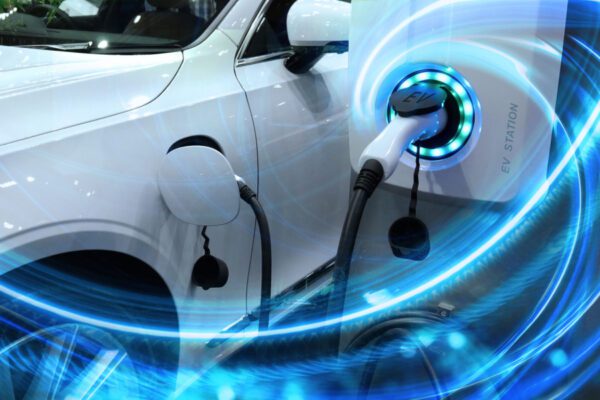The commercial insurance market for EVs is ever-evolving. As the market expands, so does the demand for proper coverage.
Global Electric Commercial Vehicle Market size is expected to grow from USD 57.13 Billion in 2021 to USD 848.94 Billion by 2030.1 Right now, if you have an electric car or truck, or perhaps a commercial fleet owner of electric vehicles, it’s likely your standard insurance processes the vehicle tied to the VIN number(s) associated with it. When you send that into the carrier, the vehicle(s) are rated accordingly and have their various risk rating models, etc., some outlining the risks associated with them. Knowing how the risks are rated helps educate clients in what these underwriters are thinking.
So, what are the Unique EV Risks to be aware of?
Repair prices can be through the roof—EV’s may be more expensive to repair than traditional gasoline powered vehicles due to their specialized components and the fact that they may require specific training for technicians to repair them. The biggest risk insureds should take into consideration are:
- Long repair times – In the commercial auto insurance industry right now is it is taking exponentially longer for vehicles to be repaired and/or replaced due to supply chain bottlenecks and not having parts in stock and them. Add the fact that it’s an EV, one research form noted that they typically “require service technicians to spend much more time figuring out what is going wrong. They are on the phone more with the manufacturer. They are on more test drives.”2
- Lack of trained technicians – Not having the proper workers in place, even for traditional vehicles, is an ever-growing issue. There is not enough manpower in the auto sector, but add in the further complications of specialized knowledge on electric vehicles and you’ll face longer wait times and increased prices for that labor. It’s in a fleet or vehicle owner’s best interest to take their electric cars and trucks to an EV certified business auto repair shop to work on electric vehicles. Sourcing that type of vendor presents an additional challenge for EV insurance carriers. It will delay the timeline for repairs while also delaying the time needed for the business owner to potentially get the vehicle back on track.
- Problems with the battery – Since there is so much lithium ion in the batteries to run them, the potential for the vehicle to catch fire and be a total loss is one of the top EV risks (and potentially the most expensive).
- Cybersecurity – Cars have been hacked into remotely. Just look at what a few hackers did to this Jeep in 2015. With a semi-autonomous vehicle or truck that’s data sharing and updating, if an accident happens in the middle of the highway that causes a four or five car pileup, whose fault is it? Are the insurance companies taking on that liability? Is it the manufacturer of the vehicle? When it comes to electric vehicles, the exposure is even more staggering. “The number of suppliers that are involved with the development of electric vehicles combined with sophisticated control systems, more communication, [Electronic Control Units] and code leaves a wide attack surface that can be breached through multiple entry points. The entire ecosystem surrounding the vehicle—the charging station and power grid—can also pose a cybersecurity concern.”3
Typically, businesses can have coverage for some of these losses, but does that extend to electric vehicles and fleets?
When a truck is damaged or stolen, the cost of repairing or replacing the vehicle is not the only expense that businesses face. The loss of income due to not having another vehicle on the road can also be significant. A business may lose customers if they have to wait for the damaged or stolen truck to be repaired or replaced, and another company transports their products instead. Fortunately, commercial auto business income coverage can help to offset these losses. This coverage starts paying for the loss of business income, including profits, just 24 hours after the covered comprehensive or collision loss occurs. This type of coverage is a recent addition and can cover extra expenses incurred but only up to the amount of otherwise applicable business income. It is important to note that this coverage is designed to compensate for lost business income, rather than providing payments for leasing or renting a replacement vehicle.
What happens when an accident occurs with your EV?
When an accident occurs, multiple parties are going to be brought into a lawsuit. The utmost importance is placed on getting the client who’s paying for insurance restored back to where they were before this accident in a timely manner. Insurance carriers know that they’re probably going to have to pay the cost of a new vehicle and potential liability costs out of pocket right away. Unfortunately, in many cases lawsuits are going to drag out as EVs pose a new risk to the market, especially in the case where there are multiple parties involved. It is unprecedented since insurance companies are yet to have large amounts of data or previous lawsuits on electric vehicles. This will change in time, but insurance companies are going to have to see how these situations play out them become routine as the market matures. In the meantime, accidents will continue to be a little bit more worrisome as an insurance carrier to insure electric vehicles and electric fleets. As the owner, you’ll want to take these risks into account.
The risks extend into the infrastructure around the EVs.
- Many electric vehicles require chargers that can either be housed on commercial lots or even in the owner’s garage. If an EV charger causes fire to a garage, which if it’s an attached garage could burn the entire house down, how does this potential plus dollar claim get handled?
- As a business owner, if you’re going to have these charging stations installed on-site or at your business location, what are the risks? Will the charging stations be outdoors? If they are outdoors there’s certainly less of a building potentially burning down.
In either scenario above, multiple risks are at play, including liability risk, property damage risk, and business interruption risks.
It will be interesting to see how the EV market risks proceed in 2023 and beyond.
Ultimately, it’s important to keep these evolving risks top of mind. For the insurance industry, how carriers respond to claims in the coming years with any problems related to electric vehicles, whether it be the vehicles themselves or the infrastructure that surrounds them, will be important to keep an eye on.
- https://www.globenewswire.com/en/news-release/2022/08/27/2505555/0/en/Electric-Commercial-Vehicle-Market-Size-Worth-848-94-Billion-by-2030-at-9-51-CAGR-Rise-in-EVs-for-Fleet-and-Commercial-to-Boost-the-Industry-Growth.html
- https://medium.com/indrastra/dont-be-fooled-electric-vehicles-are-not-easy-or-cheap-to-repair-8c7fa2fb978e
- https://www.forbes.com/sites/forbestechcouncil/2022/10/19/the-importance-of-cybersecurity-in-fueling-the-electric-vehicle-revolution/?sh=588dccf75994
Material posted on this website is for informational purposes only and does not constitute a legal opinion or medical advice. Contact your legal representative or medical professional for information specific to your legal or medical needs.





